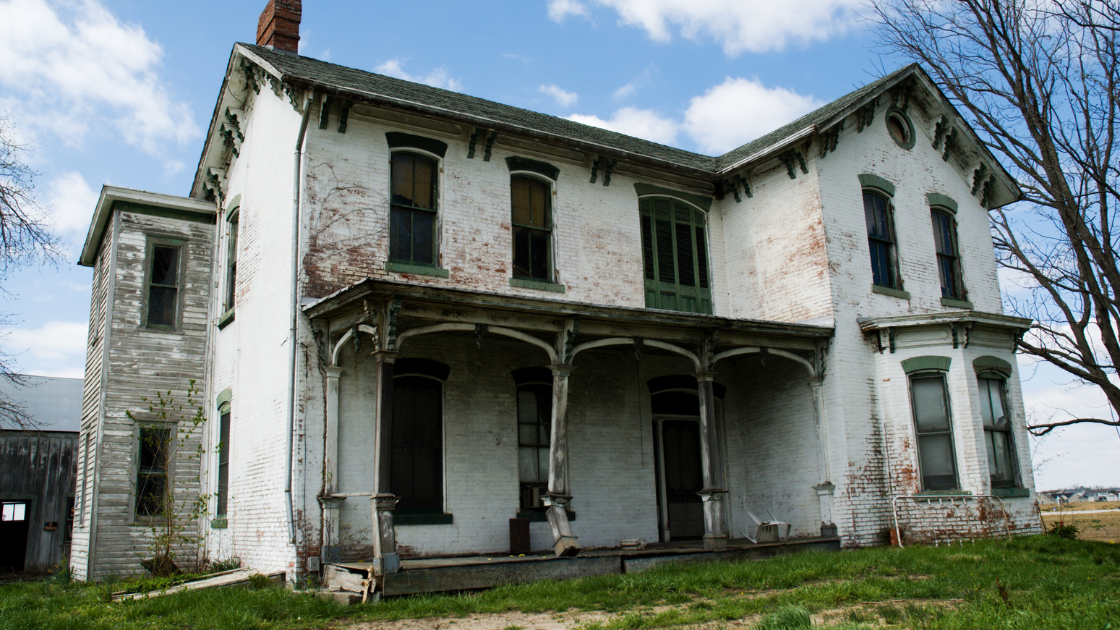In the dynamic world of real estate, the concept of buying a fixer-upper has long intrigued both seasoned investors and first-time home buyers. A fixer-upper refers to a property that requires significant renovations and repairs before it can either be lived in or sold for a profit. The allure of a fixer-upper often lies in its affordability and the potential for substantial financial gain. However, purchasing such a property comes with its own set of challenges and considerations that must be carefully evaluated to avoid costly mistakes and ensure the investment is a sound one.

The idea of transforming a dilapidated house into a dream home or profit machine is undeniably attractive. Home improvement shows and stories of successful house flips have popularized the notion that anyone can buy a fixer-upper, apply a bit of elbow grease, and reap immense rewards. Yet, the reality is often more complex. Numerous factors influence whether purchasing a fixer-upper is a smart move, including understanding the extent of the required repairs, accurately estimating renovation costs, and navigating potential pitfalls like unexpected structural issues or permitting hurdles.
This comprehensive guide aims to provide a balanced view of the pros and cons of buying a fixer-upper. By weighing the benefits against the challenges, you can make an informed decision about whether this type of real estate investment aligns with your financial goals, skills, and risk tolerance. We’ll go through the core advantages and disadvantages, key takeaways, and practical guidelines to aid in your decision-making process. Additionally, we’ll answer common questions to ensure you’re well-prepared for the journey ahead.
Key Takeaways
- Cost Savings: Understand how purchasing a fixer-upper can save you money upfront compared to move-in-ready homes.
- Customization Potential: Learn about the opportunities for personalizing and customizing a fixer-upper to suit your needs and preferences.
- Equity Growth: Discover how strategic renovations can significantly increase the property’s value and build equity.
- Renovation Challenges: Get insights into the common difficulties and unexpected issues that arise during the renovation process.
- Time and Effort: Explore the time commitment and physical effort required for different levels of home renovation.
- Financial Risks: Identify the financial risks associated with underestimating renovation costs or encountering unforeseen problems.
The Advantages of Buying a Fixer-Upper
Cost Savings
One of the most compelling reasons to consider buying a fixer-upper is the potential for upfront cost savings. Fixer-uppers typically come with a lower purchase price compared to move-in-ready homes, making them accessible to buyers with a smaller budget. This lower cost can significantly reduce your initial investment, leaving room in your budget for the necessary renovations. Furthermore, if you’re able to borrow money for the purchase and renovations, it can be a cost-effective way to enter the real estate market. Not only do you save on the property itself, but homes in need of repair also tend to attract less competition, which might provide better opportunities for negotiation on price.
Customization Potential
Buying a fixer-upper offers an unparalleled opportunity to customize your home to your specific tastes and needs. From choosing the layout and floor plan to selecting finishes and fixtures, the control you have over the renovation process means you can create a living space that reflects your personal style and meets your family’s needs. Furthermore, the ability to oversee the renovation work ensures that everything is done according to your standards. This level of customization is often not possible with move-in-ready homes, which might require additional modifications to suit your preferences.
Building Equity
Another significant advantage of purchasing a fixer-upper is the potential for building equity. By investing time and money into improving the property, you can increase its market value. This boost in property value can translate to increased equity, especially if you do the renovations strategically and cost-effectively. For example, updating kitchens and bathrooms, improving curb appeal, and adding square footage typically yield high returns on investment. Building equity not only enhances your net worth but also provides financial flexibility, whether through refinancing options or increased resale value.
The Challenges of Buying a Fixer-Upper
Renovation Challenges
Embarking on a fixer-upper project is not for the faint of heart. Renovations often come with unexpected challenges and complications that can cause stress and financial strain. Common issues include discovering hidden structural problems, dealing with outdated electrical and plumbing systems, and navigating complex building codes and permit requirements. Unforeseen obstacles can delay timelines and inflate budgets, making the entire renovation process more arduous than initially anticipated. For those considering a fixer-upper, it’s crucial to be prepared for these challenges and have a contingency plan — both in terms of time and budget.
Time and Effort
Renovating a fixer-upper requires a significant time commitment and physical effort. Managing a renovation project involves coordinating with contractors, making countless decisions on materials and finishes, and potentially doing some of the work yourself to save money. This time investment can be substantial, often stretching over several months or even years, depending on the scope of the work. It’s important to realistically assess whether you have the time, energy, and skills to take on such a project. Balancing renovation work with daily life responsibilities can be challenging and might not be feasible for everyone.
Financial Risks
One of the biggest risks of buying a fixer-upper is underestimating the costs involved. From initial purchase price and closing costs to renovation expenses and unexpected repairs, the financial commitment can quickly escalate. Misjudging the extent of the work needed or encountering major issues can lead to budget overruns. Additionally, there is always the risk that the property won’t appreciate in value as much as anticipated, leading to a lower-than-expected return on investment. Ensuring a thorough inspection, conducting detailed cost estimates, and having a financial cushion for unexpected expenses are critical steps to mitigate these risks.
Evaluating a Fixer-Upper: What to Consider
Structural Integrity
Before committing to a fixer-upper, assess the property’s structural integrity. Significant structural issues, such as foundation problems, roof damage, or extensive mold, can be costly to repair and might not be worth the investment. Hiring a professional inspector to thoroughly evaluate the property is essential. An experienced inspector can identify potential red flags and provide a realistic estimate of the repair costs, helping you make an informed decision.
Location and Neighborhood
The adage “location, location, location” holds true in real estate, especially for fixer-uppers. The property’s location significantly impacts its resale value. Buying a fixer-upper in a desirable neighborhood with good schools, amenities, and low crime rates increases the likelihood of a profitable investment. Research the area’s real estate trends, future development plans, and overall appeal to ensure the location aligns with your investment goals.
Renovation Scope and Cost
Evaluate the renovation scope and cost meticulously. Create a detailed renovation plan that outlines all the necessary repairs and upgrades, from structural fixes to cosmetic improvements. Obtain quotes from contractors and factor in potential cost overruns. Having a clear understanding of the renovation scope and cost allows you to budget effectively and determine if the fixer-upper is financially viable. It’s also wise to add a contingency budget to account for unexpected expenses.
Practical Tips for Buying and Renovating a Fixer-Upper
Start with a Plan
Having a comprehensive renovation plan is crucial when buying a fixer-upper. This plan should include a realistic timeline, detailed budget, and prioritized list of improvements. Break down the renovation into manageable phases and avoid overcommitting to multiple projects simultaneously. A well-structured plan keeps the renovation on track and prevents costly and time-consuming distractions.
Work with Professionals
While it might be tempting to tackle certain renovations yourself to save money, working with professionals ensures the job is done correctly and efficiently. Hire experienced contractors, electricians, and plumbers for more complex tasks. Their expertise can prevent costly mistakes and ensure the renovation meets building codes and safety standards. Additionally, consider hiring a project manager to oversee the entire renovation process, especially if the project is extensive.
Focus on High-ROI Improvements
When renovating a fixer-upper, focus on improvements that offer a high return on investment. Kitchens and bathrooms typically provide significant returns, as buyers prioritize these spaces. Energy-efficient upgrades, such as new windows and insulation, can also enhance the property’s value. Prioritize improvements that increase functionality, improve aesthetics, and address any structural issues. Consulting with a real estate professional can help identify the most valuable upgrades for your specific market.
FAQs About Buying a Fixer-Upper
What are the major benefits of buying a fixer-upper?
The major benefits include potential cost savings, customization opportunities, and the ability to build equity through strategic renovations. Buying a fixer-upper can also be an exciting project for those who enjoy home improvement.
What are the common risks associated with buying a fixer-upper?
Common risks include underestimating renovation costs, encountering unexpected structural issues, and experiencing delays in the renovation timeline. Financial risks also include the possibility that the property may not appreciate as expected.
How do I estimate the renovation costs for a fixer-upper?
Estimating renovation costs involves creating a detailed renovation plan, obtaining quotes from contractors, and adding a contingency budget for unexpected expenses. Consulting with experienced professionals and using cost estimation tools can provide more accurate projections.
Should I hire a professional inspector for a fixer-upper?
Yes, hiring a professional inspector is essential for evaluating the property’s condition. An inspector can identify structural issues, potential hazards, and provide an estimate of the necessary repairs, helping you make an informed decision.
Is buying a fixer-upper worth it for first-time homebuyers?
Buying a fixer-upper can be a great opportunity for first-time homebuyers looking for affordability and customization options. However, it requires careful planning, realistic budgeting, and a willingness to take on the challenges of renovation.
In conclusion, buying a fixer-upper presents both exciting opportunities and significant challenges. By understanding the pros and cons, thoroughly evaluating properties, and planning renovations carefully, you can make a smart investment that aligns with your financial goals and personal preferences. For more expert advice and assistance with buying and renovating properties, visit Rob Smith Real Estate. Our team is here to guide you every step of the way in your real estate journey.


